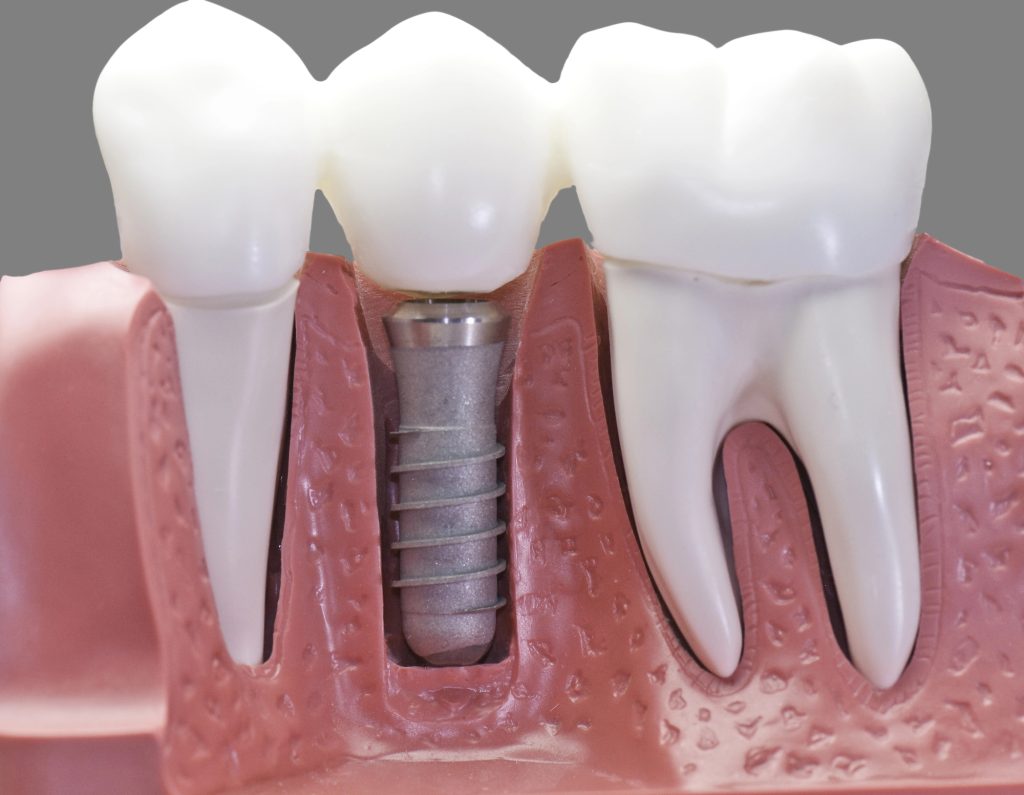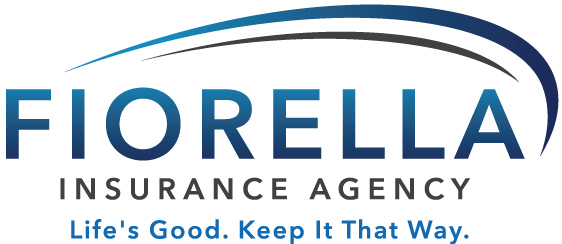Does health insurance cover dental implants? Many people are left wondering if their health insurance covers dental implants.
The cost of dental implants can be quite steep, and understanding how your insurance comes into play is crucial.
Navigating the world of health insurance coverage for dental procedures can feel like a maze. Fortunately, we can assist you in navigating this complex landscape.
In this post, we’ll explore and answer the question “Does health insurance cover dental implants?”, how different plans approach coverage, and ways to maximize your benefits. So let’s dive in!
Contact Fiorella Insurance today for your free health insurance quote.
Table of Contents
- The High Cost of Dental Implants and the Role of Insurance
- Unraveling the Medical Necessity in Dental Implant Coverage
- Medicaid and Medicare: Dental Implant Coverage Explained
- Does Health Insurance Cover Dental Implants? A Deep Dive.
- Dental Implant Coverage Under Different Insurance Plans
- The Cost Factor: Dental Implants vs Natural Teeth Replacement Options
- Navigating Your Benefits with Fiorella Project
- Deciphering Blue Cross Blue Shield’s Dental Implant Coverage
- Digging Deeper into Your Plan’s Specifics
- Demystifying Preauthorization: Navigating High-Cost Procedure Coverage
- Exploring Other Health Insurance Plans That Cover Dental Implants
- Navigating Necessary Treatments and Extractions Covered by Insurance
- Making Dental Implants Affordable Through Insurance Plans
- FAQs in Relation to Does Health Insurance Cover Dental Implants
- Conclusion
The High Cost of Dental Implants and the Role of Insurance
For those seeking to replace missing teeth, dental implants have become a go-to solution. They offer an appearance and functionality that closely resemble natural teeth. Despite their advantages, dental implants come with a hefty cost.
In light of this hefty price tag for both individual and full-mouth restoration treatments (which may escalate up to as much as $90,000), comprehensive dental insurance becomes crucial in managing such expenses.
-
Save
Navigating Coverage Limitations
Your insurance provider may take into account certain factors regarding pre-existing conditions. There could be restrictions on coverage based on waiting periods outlined in some policies. It’s important to be aware of any exclusions or limitations within your health insurance plan concerning oral surgeries, as a “missing tooth” exclusion clause might apply. This means that no benefits would be provided if you lost a tooth before enrolling in your current policy.Making Informed Decisions About Your Oral Health Care Plan
Weighing all factors is key when choosing between different plans so that they best fit your needs, ensuring good oral health without financial strain. Understanding how each element plays into what portion gets covered helps make informed decisions about proceeding with necessary treatment options while keeping costs manageable.Knowing the costs associated with dental implants can be quite daunting, but it is crucial to have a clear understanding of your insurance policy. Familiarizing yourself with important details such as annual payout limits and exclusions for missing teeth can potentially save you a significant amount of money. #DentalHealth #InsuranceTips Click To Tweet
Unraveling the Medical Necessity in Dental Implant Coverage
The term “medical necessity” often arises when discussing dental implant coverage. It refers to treatments or procedures deemed essential for an individual’s health maintenance. Sometimes, patients with medically necessary reasons may have a significant portion of their dental implant costs covered by their health insurance. However, pinpointing what qualifies as medical necessity is not always clear-cut. The criteria and definitions can vary across different insurance companies; tooth loss due to trauma or disease might be seen as medically necessary by one insurer but dismissed by another.The Crucial Role of Oral Surgeons in Insurance Claims
A skilled oral surgeon plays a pivotal role here – they are proficient at submitting claims and providing vital documentation that supports the argument for medical necessity. Beyond performing the actual implant surgery, these professionals also conduct diagnostic tests like CT Scans before treatment commences. These scans help identify potential issues such as bone density problems or infections that could complicate proceedings. If pre-treatment scans are considered medically necessary, they may fall under your health insurance benefits.Navigating Health Insurance Policies: A Complex Task
Determining if your case qualifies for coverage based on medical necessity involves careful navigation through complex policy language and requirements set forth by each insurance company. Here, you’ll find a sample letter outlining medical necessities for dental implants; it serves as an excellent starting point when discussing your situation with healthcare providers and insurers alike. Remember. Knowledge empowers. By understanding more about how “medical necessity” works within the context of dental implant coverage, you’re better equipped to make informed decisions regarding your care plan while potentially saving substantial money along the way.Understanding how to navigate health insurance for dental implants is crucial. The key factor to consider is whether the procedure is deemed medically necessary. To support your case, oral surgeons can assist in presenting compelling arguments. #HealthInsurance #DentalImplants Click To Tweet
Medicaid and Medicare: Dental Implant Coverage Explained
Dental implants can be a costly but necessary procedure for many individuals. While dental insurance benefits vary, government-run health insurance programs like Medicaid and Medicare may provide some coverage. Medicaid, the program offering medical assistance to low-income families, has varying rules on what services are covered based on state regulations. In certain instances, this could include dental implant costs. In contrast with Medicaid’s variable policies, traditional Medicare typically does not cover routine oral healthcare or procedures such as dental implants unless deemed medically necessary by an oral surgeon or prosthodontist.The Intricacies of Medical Necessity in Dental Implants Under Medicare
To secure coverage under traditional Medicare due to medical necessity for your single implant treatment or full-mouth restoration, there must exist clear evidence that links tooth loss directly affecting overall health condition. For instance, if you’re experiencing significant weight loss because of nutritional issues caused by missing teeth, then it might qualify as medically required treatment leading to partial payment towards the cost from standard Medicare plans. If you have opted into a supplemental policy like Medigap or a private Advantage Plan through companies including Humana and Aetna, these often offer additional benefits beyond those offered in the original plan, potentially covering part of your dental work depending upon specifics outlined within individual contract terms.Potential Exceptions: Prosthetic Devices & Related Surgeries
An exception exists within Original Medicare Part B where prosthetic devices (like dentures) – even though they replace natural teeth – are sometimes covered along with related preparatory surgeries needed before fitting them into the mouth cavity if they’re an integral part of reconstructive surgery after jaw cancer treatment, etc.Key Takeaway: While dental implants can be a hefty expense, some coverage may be available through Medicaid depending on state regulations. Traditional Medicare generally doesn’t cover such procedures unless medically necessary, but supplemental policies like Medigap or private Advantage Plans might offer additional benefits. Exceptions exist for prosthetic devices under certain conditions.
Does Health Insurance Cover Dental Implants? A Deep Dive
If you’re considering dental implants to replace missing teeth, one of your first questions might be whether your health insurance will cover the costs. The answer can vary depending on several factors including the type of insurance plan you have and its specific benefits.Dental Implant Coverage Under Different Insurance Plans
Many traditional dental insurance plans do not cover dental implants as they are often considered a cosmetic procedure rather than a medical necessity. However, some medical insurance companies may offer partial coverage if tooth loss has resulted from an accident or disease. In contrast, Obama Care Insurance provides more comprehensive dental coverage, which could potentially include dental implant treatment. This is especially true for children’s services under this plan, but adult benefits can vary by state and individual policy terms.The Cost Factor: Dental Implants vs Natural Teeth Replacement Options
The cost of getting a single implant done by an oral surgeon can vary significantly based on location and the complexity of the procedure. It’s crucial to understand these potential out-of-pocket expenses when comparing natural teeth replacement options like dentures or dental bridges.Navigating Your Benefits with Fiorella Project
Finding out what exactly your health or dental insurance covers in terms of implants can be daunting due to the complex terminology used in many policies. That’s where our Fiorella project comes into play – helping individuals navigate their way through different available insurance plans. We strive to help families understand their entitlements better so that they can make informed decisions about such procedures without any surprise bills later down the line. Note: Ensure that you check directly with your insurer before making any final decisions regarding your treatment plan.Deciphering Blue Cross Blue Shield’s Dental Implant Coverage
Figuring out dental insurance can be a tricky labyrinth, particularly when attempting to comprehend what is included in particular policies. One such plan provider is the national federation of 36 independent companies known as Blue Cross Blue Shield (BCBS). The scope and depth of coverage for procedures like dental implants can vary significantly across these entities due to their individualized underwriting standards.Digging Deeper into Your Plan’s Specifics
To truly grasp your own policy’s specifics regarding coverage for treatments like single implant surgery or full-mouth restoration with implants, you must delve deep into your policy document. Key sections to focus on are those concerning oral surgery and prosthetic devices these will typically provide insights about the benefits available towards such major dental work. If ambiguity persists after studying the documentation, reaching out directly to a customer service representative at BCBS could help clear up any remaining confusion around aspects of treatment that would fall within the ambit of your particular plan’s coverage.Demystifying Preauthorization: Navigating High-Cost Procedure Coverage
A common practice among many insurance companies, including certain affiliates within BCBS, involves requiring preauthorization before agreeing to cover high-cost procedures akin to implant surgery. In this scenario, dentists need to submit detailed proposals outlining why patients require these surgeries along with cost estimates associated with them.- Your dentist submits a proposal detailing medical necessity and projected costs.
- The insurer reviews said information against internal guidelines.
- A coverage decision is made based on evaluation results.
Key Takeaway: Understanding your health insurance’s coverage for dental implants can be a labyrinthine task. To navigate it, dig into your policy details, particularly sections on oral surgery and prosthetic devices. If confusion persists, contact customer service directly. Remember that preauthorization may be required for high-cost procedures like implant surgery.
Exploring Other Health Insurance Plans That Cover Dental Implants
The world of health insurance is vast and diverse, offering numerous plans that might include coverage for dental implants. It’s crucial to remember that the extent of this coverage can differ significantly between various insurance providers, as well as among different policies within a single company. A common choice many individuals opt for is employer-provided group health insurance. These plans often encompass a dental component that may cover part or all costs associated with your dental implant treatment. However, it’s essential to thoroughly read through your policy details or consult an HR representative to comprehend what specific treatments are covered under these benefits. Insurance options available on the Health Insurance Marketplace, also known as Obamacare or ACA (Affordable Care Act) plans, could potentially provide some degree of coverage for procedures like replacing missing teeth with dental implants. Not every plan offers comprehensive oral care services; however, some do present this benefit either bundled in their overall package or purchasable separately.PPO vs HMO: Navigating Your Coverage Options
In addition to considering who provides your medical and/or dental insurance be it via work-sponsored programs, marketplace offerings, or private insurers you should also take into account whether you have a PPO (Preferred Provider Organization) plan versus an HMO (Health Maintenance Organization). The type of plan you possess plays a significant role when seeking out major surgeries such as those involved in placing single tooth replacements using titanium-based natural-looking artificial roots called “implants”. A PPO Plan Typically Offers More Flexibility: If flexibility is high up on your priority list, then Preferred Provider Organizations (PPOs) typically offer more leeway by allowing patients the freedom to choose any dentist without requiring referrals from primary healthcare physicians first. This could streamline approval processes related to particularly expensive procedures, including but not limited to full-mouth restoration involving bridges mounted atop implanted fixtures compared to Health Maintenance Organizations (HMOs).Key Takeaway: Health insurance coverage for dental implants varies widely, with options from employer-provided plans to ACA offerings. The type of plan—PPO or HMO—also impacts coverage and flexibility. Always scrutinize your policy’s specifics before treatment to avoid surprise bills.
Navigating Necessary Treatments and Extractions Covered by Insurance
Understanding your dental insurance benefits when it comes to necessary treatments such as tooth extractions is critical, especially if you’re considering dental implants. This knowledge can help you navigate the process smoothly without unexpected costs.The Intricacies of Tooth Extraction Coverage
Tooth extraction procedures vary in complexity and cost based on factors like the location of the tooth, its condition, or whether a simple extraction or surgical removal is required. An oral surgeon often performs these intricate extractions, which may involve removing bone around the tooth or cutting into the gum tissue, thereby increasing costs significantly. Fortunately, many health insurance plans cover a substantial portion of these expenses when deemed medically necessary.Dental Implant Surgery Post-Tooth Extractions
If you’ve experienced significant tooth loss due to decay or injury and are contemplating replacing extracted teeth with dental implants, understanding how your medical insurance plan handles this procedure becomes crucial. Dental implant surgery involves inserting titanium posts into your jawbone where they serve as roots for artificial replacement teeth that closely mimic natural teeth both functionally and aesthetically, making them an ideal solution for those who have lost one or more teeth.Prior Authorization Process: A Crucial Step
Before covering certain services like dental implant treatment, insurers typically require prior authorization (PA). It entails submitting detailed information about why the service is needed so they can determine if it falls within their coverage guidelines. Insurance providers frequently need proof that less expensive options were considered first but proved ineffective before approving higher-cost treatments such as single implant surgeries. It’s essential to remember each insurer has different policies regarding PA requests; always check yours beforehand.Are you struggling to understand dental insurance coverage for tooth extractions and implants? Our comprehensive guide can assist you in navigating the complexities, managing costs effectively, and making the most of your benefits.#Dentalinsurance #HealthCoverage Click To Tweet
Making Dental Implants Affordable Through Insurance Plans
It’s a known fact that dental implants are not cheap. However, comprehensive dental insurance can play an instrumental role in making such treatments affordable. The cost of getting a single implant or undergoing full-mouth restoration varies greatly depending on several factors, including your location and the complexity of your case. The right coverage from your health insurance plan can significantly offset these costs.1. Understanding Your Dental Insurance Benefits
Dental plans differ widely when it comes to covering major services like implants. While most cover preventative carefully, they only partially cover restorative work after you’ve met your deductible. Bear in mind also that many policies have an annual maximum benefit limit, which could affect how much is covered for expensive procedures like implant surgery once this threshold has been reached within the year.2. Choosing A Plan That Fits Your Needs
Considering all aspects of premium rates, deductibles, and co-payments, it is wise to seek the advice of specialists in medical insurance benefits who can help you select a plan that meets both your financial capacity and oral healthcare needs. Consulting with professionals who specialize in understanding different types of medical insurance benefits might be helpful during this process. They would guide you through choosing one that best fits into both financial constraints as well as needs related to oral healthcare. Also, remember to check any potential limitations or exclusions tied to pre-existing conditions or waiting periods before deciding on a specific policy. This information usually lies hidden within fine print but plays a crucial part in determining to what extent health insurance covers expenses incurred due to tooth loss replacement solutions, etc.3. Maximizing Coverage With Smart Strategies
A few tips to help maximize available coverage include negotiating fees with providers to reduce out-of-pocket payments initially required. Also, consider group enrollment if multiple family members need similar types of treatment since some insurers offer discounts for large groups. Lastly, it is worth remembering to look into FSAs and HSAs for potential savings.Key Takeaway: While dental implants can be pricey, the right health insurance plan can significantly offset costs. However, understanding your coverage and choosing a suitable plan requires careful consideration of various factors like premiums, deductibles, and co-payments. Maximizing benefits may also involve negotiating fees with providers or considering group enrollment.
FAQs in Relation to Does Health Insurance Cover Dental Implants
Are dental implants covered by insurance in the US?
While some health insurance plans may cover a portion of the cost, most dental implant procedures are not fully covered. Coverage varies widely based on your specific plan.How do you get implants when you can’t afford them?
You might consider payment plans, dental discount programs, or seek care from dental schools. Some charities and nonprofits also offer assistance for major dental work.Do dental implants count as medical expenses?
Dental implants can be considered a deductible medical expense if they are deemed medically necessary by a healthcare provider.How much do implants cost?
The average cost of a single tooth implant in the US ranges between $1,500 to $6,000 depending on various factors like location and the complexity of the procedure.Conclusion
We’ve embarked on a journey through the complex world of health insurance and dental implants, and it has been quite an adventure! During our exploration, we discovered that although dental implants can be expensive, they are an effective solution for missing teeth. The concept of “medical necessity” plays a crucial role in determining whether insurance will cover these procedures. Your oral surgeon can be your advocate when it comes to claiming insurance benefits for dental implant treatments. Medicaid and Medicare may provide coverage for certain aspects of dental implant procedures if they are deemed medically necessary. Different insurance providers, such as Blue Cross Blue Shield, have specific criteria for covering oral surgery treatments like dental implants. Other health plans might also contribute towards the costs depending on the specific treatment needs involved. Thankfully, most insurance plans typically cover necessary treatments like wisdom tooth extraction. That’s definitely good news! Ultimately, having comprehensive dental insurance is essential to make these costly treatments more affordable. Remember – fully understanding your policy is key to maximizing its benefits and navigating the complexities of coverage for dental implants. In conclusion: Is health insurance likely to cover dental implants? The answer isn’t straightforward. However, with careful consideration and a thorough understanding of your policy details, there is potential for coverage.Contact Fiorella Insurance today for your free health insurance quote.



